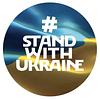Take a photo of a barcode or cover
It wasn't a good idea to read this during a stressful time in my life.
The book is depressing to say the least. It tackles a lot of intersting concepts but some parragraphs went way over my head.
It's alarming how little we understand of the cascading effects of climate change.
The book is depressing to say the least. It tackles a lot of intersting concepts but some parragraphs went way over my head.
It's alarming how little we understand of the cascading effects of climate change.
Oof! Wallace-Wells pulls nary a mf punch as he enumerates the causes, consequences, and conditions of the climate crisis. UNINHABITABLE EARTH is alarmist. As it should be. It presages doomsday. How could it not?? Incredibly researched, far-ranging, with sentences that shine. Notably, Wallace-Wells doesn't approach the issue from quite the same far-left position that I'm used to (like, say, Naomi Klein does, though he cites her). I wonder if his aversion to dogma could make this book more palatable to a wider audience? But who reads books anyway!
In short, hard to imagine a book more gorgeously written about so bleak a future. (Except my best friend Dan Sherrell did write exactly that; it's called WARMTH, hitting shelves Fall 2021. Keep your eyes peeled).
And, a moment of cross-pollination from EMERGENT STRATEGY, which I just finished. She asks how many of us feel, and can say proudly:
"I am living a life I don't regret
A life that will resonate with my ancestors,
and with as many generations forward as I can imagine.
I am attending to the crises of of my time with my best self,
I am of communities that are doing our collective best
to honor our ancestors and all humans to come."
I am not able to say this; both UNINHABITABLE EARTH and EMERGENT STRATEGY encourage me to take action that will make its saying more possible.
P.S. If you don't want to read the whole book, you could read the magazine article that spawned it: https://nymag.com/intelligencer/2017/07/climate-change-earth-too-hot-for-humans.html
In short, hard to imagine a book more gorgeously written about so bleak a future. (Except my best friend Dan Sherrell did write exactly that; it's called WARMTH, hitting shelves Fall 2021. Keep your eyes peeled).
And, a moment of cross-pollination from EMERGENT STRATEGY, which I just finished. She asks how many of us feel, and can say proudly:
"I am living a life I don't regret
A life that will resonate with my ancestors,
and with as many generations forward as I can imagine.
I am attending to the crises of of my time with my best self,
I am of communities that are doing our collective best
to honor our ancestors and all humans to come."
I am not able to say this; both UNINHABITABLE EARTH and EMERGENT STRATEGY encourage me to take action that will make its saying more possible.
P.S. If you don't want to read the whole book, you could read the magazine article that spawned it: https://nymag.com/intelligencer/2017/07/climate-change-earth-too-hot-for-humans.html
challenging
dark
informative
reflective
sad
medium-paced
If you're new to climate science and the honestly bleak predicament we find ourselves in this book may shock you, but as someone who has done quite a bit of research and reading on the topic, not much of this book surprised me or was all that new. Books like this present more problems than solutions for the reader, which always feels, to me, a bit defeating.
informative
reflective
medium-paced
challenging
emotional
informative
reflective
sad
medium-paced
This is easy to get through, and it is certainly well researched. I think it serves a purpose, but it is important to note that it is basically trying to communicate worst case scenarios. Furthermore, the author is not a scientist, and he has not been involved in science writing for decades like some of his contemporaries.
It is well written and draws from tons of source material, but I don't feel like it's worth the hype it had when it came out.
It is well written and draws from tons of source material, but I don't feel like it's worth the hype it had when it came out.
challenging
informative
reflective
medium-paced
Didn't have time, want to continue. Because it was great
This is a non-fic about the dire situation the world is in. Environmental collapse isn’t a pessimistic possible future, it is present. I’ve read is as a part of March/April monthly read at Non Fiction Book Club group.
The book tells a huge number of anecdotes about how the climate change already affecting humsan lives and how it can affect them in a future. So far it is preaching to a choir, I fully agree that the danger is already present even if I haven’t knew a lot of examples he made, like the fact that in the sugarcane region of El Salvador, as much as one-fifth of the population—including over a quarter of the men—has chronic kidney disease, the presumed result of dehydration from working the fields they were able to comfortably harvest as recently as two decades ago. Or that an 8-million-year-old bug brought back to life in 2007 and it is possible that as polar ice sheets are melting, we can get diseases unseen for centuries and even predating humans.
However, while I’m not a specialist in many spheres he covered, I dabble a bit in economic history. So, when he introduces ideas by Andreas Malm and others that our high standards of living are due to tapping reserves of fossil fuels, he says that “doctrinaire economists would argue there is much more to the equation of growth” for the rest of the chapter he treats this idea as a gospel truth, and not something now on margins of mainstream economics. This throws a shadow on other things he says.
Definitely a worthy read.
The book tells a huge number of anecdotes about how the climate change already affecting humsan lives and how it can affect them in a future. So far it is preaching to a choir, I fully agree that the danger is already present even if I haven’t knew a lot of examples he made, like the fact that in the sugarcane region of El Salvador, as much as one-fifth of the population—including over a quarter of the men—has chronic kidney disease, the presumed result of dehydration from working the fields they were able to comfortably harvest as recently as two decades ago. Or that an 8-million-year-old bug brought back to life in 2007 and it is possible that as polar ice sheets are melting, we can get diseases unseen for centuries and even predating humans.
However, while I’m not a specialist in many spheres he covered, I dabble a bit in economic history. So, when he introduces ideas by Andreas Malm and others that our high standards of living are due to tapping reserves of fossil fuels, he says that “doctrinaire economists would argue there is much more to the equation of growth” for the rest of the chapter he treats this idea as a gospel truth, and not something now on margins of mainstream economics. This throws a shadow on other things he says.
Definitely a worthy read.




